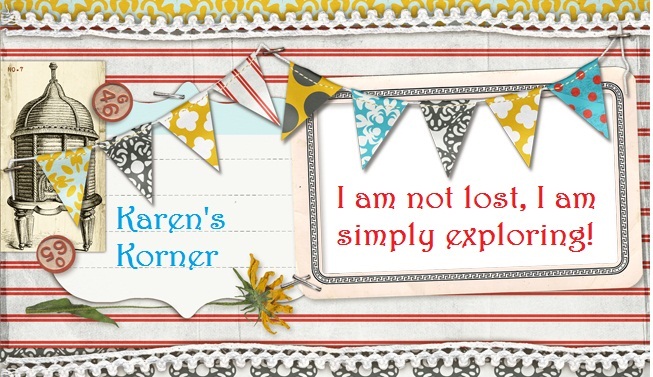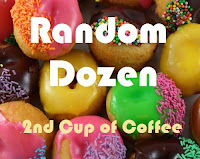What?"
or…Riddle Me This
This
morning's Bible reading is from Mark 4:26-34
I love riddles. I
have a friend who likes to come up with them and I love trying to solve
them. Some times I am very good at
it….others…not so much. In today’s Bible
reading, Jesus tells a couple of parables. These parables are about farming and
about how plants grow. Jesus talks about the tiny mustard seed and the large
plant that comes from it. You may have heard the phrase, "The faith of a
mustard seed" referring to how small things begin and how amazingly large
they can become through faith in God. Somehow in this version of the parable,
things don’t seem as grand. The small
seed grows up to become the greatest of all shrubs? Shrub doesn’t sound all that great. Other translations use herb, plant, and
garden plant. But….We’re reading from
Mark today – in Luke 13:19 things sound more like what you may remember: It is
like a mustard seed that someone took and sowed in the garden; it grew and
became a tree, and the birds of the air made nests in its branches. It sounds a lot Grander when it is put like
that…don’t you think? A tree instead of
a shrub or a garden plant. Never mind that a mustard plant is an herb or a
shrub. The parable sounds better as a
tree, right? I’m guessing that the writer of Luke wanted a little more
punch in the narrative, or that the oral culture of the time has super-sized
the parable before it was written down.
It is very likely that Jesus said “shrub” (or lachanon – the Greek word
for herb or garden plant) when he told the parable. We still get the idea that small things can
become amazingly large through faith in God.
And no matter what, Jesus provided an opportunity for discussion. You see, right at the end of the reading, there’s something
I think gets lost. It says that Jesus always talked to the people in
riddle-talk-- parables. But he would do further explanation to the disciples in
private. There is more to learn! There
is more to understand! There is more to seek! Jesus talked about these things
with his disciples. He got into smaller groups and really hashed out the
stories. Jesus and the disciples spent time in what is called
"midrash" -- where rabbis and students discuss scripture and the
possible meanings. They tend to look at things from several angles and try to
really chew on things as they seek deeper and deeper meaning. I think Jesus’ example of digging deeper into the stories
with the disciples further supports the idea that the stories weren't meant to
turn people away or to confuse them to the point of giving up. They were an
invitation to learn more. There are two parables in today’s reading. The second one is the mustard seed. The first one is a “seed” parable, too: Most of us have planted something at some time in our
lives. Seeds are planted. They grow. The
plants grow large. The plants are harvested, providing nourishment and
resources. The seeds that come from the plants are planted – and more growth
begins. I think that’s how Jesus is comparing The Kingdom – or to
put it in non-royal language, God’s realm. Or to put it into something even
more understandable, God’s neighborhood.
And in God’s neighborhood, we have seeds planted, growth, LOTS of
growth, harvest, and continued seed planting - All of it for the benefit of
those whose lives are enhanced by what grows. But it does require a reseeding
so that the growth pattern doesn’t stop. Parables are meant to make you think. They’re meant to start conversations. Parables confuse, anger, and irritate folks
so that people will think beyond the words and beyond what may seem obvious
into something deeper and soul-enriching.
Let me ask you some dangerous questions. Let me ask some
questions that give you permission to think in any direction the questions take
you. How have you experienced God’s
neighborhood? What makes you want to keep believing in God? How are you reseeding
what you’ve experienced? And while
you’re chewing on all of that, let’s head back to the mustard seed.
Do you see God’s neighborhood like:
•A little seed that grows into a big weed!
•A little seed that grows into a big weed that folks spend
hours trying to tear out – really to no avail.
•A little seed that pays no attention to the desire of the
farmer – it grows and grows and grows – often choking out the plants around it.
•A little seed that produces an uncontrollable and
disorderly result.
•A little seed that produces, ultimately, the perfect taste
to go with a hot dog.
Or perhaps we could go in this direction.
•God’s neighborhood grows everywhere – and you can’t get rid
of it!
•God’s neighborhood isn’t dependent on folks to defend it or
nurture it
•God’s neighborhood isn’t harmed by folks who attack it or
try to minimalize it
•God’s neighborhood isn’t neat and tidy – it’s all over and
we can’t control it!
•God’s neighborhood is distinct and makes stuff “taste”
better
And there’s more that comes from thoughts like that
God’s neighborhood is tiny and at the same time bigger than
you can imagine
When we mess up, God’s neighborhood isn’t messed up! And before we get images of how to make this congregation
bigger and better into our minds . . . God’s neighborhood isn’t about how big
our churches are or how close we are to making our budget or what programs we
have or how good our preacher is or whether we have enough money to buy nice
things or ever pay our bills. It’s about
God’s presence. . . and God’s love . . .
and God’s acceptance . . . and God’s extravagant welcome . . . for all. And in God’s neighborhood, we get to have great
conversations. Because God is still
speaking! Because the parables are still
living. They are still worth discussing.
They are worth chewing on. God still
wants us to be able to experience the word and experience God’s neighborhood
from different perspectives and different angles. God wants us to continue to listen for God’s
voice and to continue having conversations with one another as we seek
deeper and deeper meaning. God’s
neighborhood is here, now. It’s arriving now. It will arrive in the future. It
has been here in the past. It is unpredictable, messy, uncontrollable . . . It
is marvelous. And lots of the time it makes you think, what?














































No comments:
Post a Comment